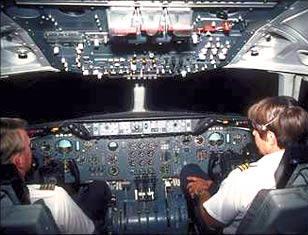|
|||||||||||||||||
|
|
|
|||
|
Jeppesen Study
Highlights Inadequacy Of Strict FTL Rules To Limit Crew Fatigue By Steve Hall |
||||
 |
November 1, 2011 - Jeppesen, recently released the
results of a study conducted to determine the level of
effectiveness of flight and duty time regulations
related to crew fatigue management.
In the study, Jeppesen quantified the performance
of seven flight time limitation regulatory approaches
(FTLs) that were measured against 300 of the largest
airline fleets worldwide.
The study highlights the inadequacy of using strict FTL rules to limit crew fatigue and instead proposes a shift in direction for the commercial aviation industry by focusing on interactive fatigue models that incorporate continuous data and feedback.
In
the study, more than 2,100 optimization simulations were
conducted using Jeppesen Crew Pairing optimizer
functionality. The results were analyzed in detail to
calculate efficiency and safety differences between the
FTLs that were studied. |
|||
|
?This
unique study of flight and duty time regulations allows us to
quantify the effectiveness of the constraints under which
airlines are operating,? said Tim Huegel, director, Jeppesen
Aviation Portfolio Management. ?We believe that an analytic and
scientific model-based approach to the crew fatigue issue will
be critical for increasing overall flight safety in the
commercial aviation industry as we move forward.?
Newly
proposed Notice of Proposed Rulemaking (NPRM) flight time
limitation regulatory approaches from the U.S. and Notices of
Proposed Amendment (NPA) approaches from Europe were included in
the study, to provide a wide range of regulatory guidelines that
are used currently and will be used in the future by airlines to
address crew fatigue factors.
The
Fatigue Data Collection (FDC) 2011 is the largest industry
initiative to-date for collecting world-wide operational data on
crew fatigue in airline operation.
The data collection is organized by Jeppesen in collaboration with the Stress Research Institute at Stockholm University, Sweden. It is not a ?classical? scientific data collection survey as the participants are truly anonymous, making for example training more difficult. Jeppesen?s hope is that large quantities of data can compensate for lower control over the collection. |
||||


